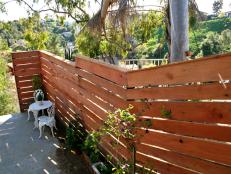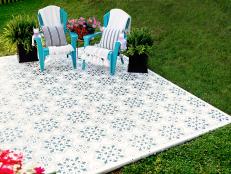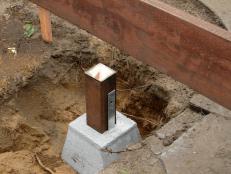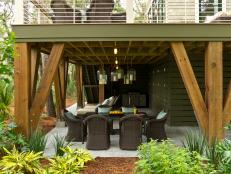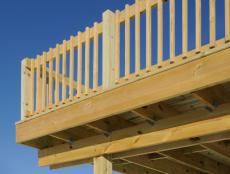Discover Solid Advantages of Concrete Homes

Comstock
If your idea of a concrete home is a building that resembles a battlefield bunker, it's time to reconsider. Most concrete homes look the same as conventional wood-frame homes these days, but there's a lot more to them than meets the eye. Concrete houses are constructed with a variety of methods. Most — especially in storm-prone coastal areas — have traditional concrete block walls. But more and more builders are choosing foam-insulated concrete forms (ICF), with their added insulation value and ease of use. Other approaches include cast-in-place and removable concrete forms (RCF), panel systems, and newer methods featuring aerated or sprayed-on concrete.
However they're made, concrete homes offer powerful advantages to homeowners:
Strength. Able to withstand 250-mile-an-hour winds and wind-borne debris, the storm resistance of concrete homes is the No. 1 drawing card for people in hurricane and tornado zones, says Dave Pfanmiller of Security Building Corporation, an RCF home builder in North Carolina.
Energy efficiency. Thanks to high energy prices, this benefit is "a close second" in attracting buyers to concrete homes, Pfanmiller says. The thermal mass of the walls and the tight seals at joints enable concrete homes to excel at keeping conditioned air in and extreme temperatures out.
Temperature control. The tight building envelope also means concrete houses have fewer hot and cold zones and less draftiness.
Noise control. Concrete walls filter out noise from outside.
Durability. Concrete does not harbor the insects and rot that can cause frame houses to deteriorate, Pfanmiller says. Concrete houses have a building life expectancy of centuries.
Fire resistance. If the house catches fire, the concrete won't burn or enable the fire to spread.
Green construction. Not only do they require less energy for heating and cooling, but concrete-walled houses also conserve resources by using fewer wood products. Typically they incorporate lumber only for interior framing. They can provide healthy environments with fewer air-borne allergens, molds and contaminants than most frame houses, and they have cleaner indoor air.
Economic value. Although concrete houses usually cost more to build than frame houses, once constructed, they are veritable saving machines due to lower utility costs.







